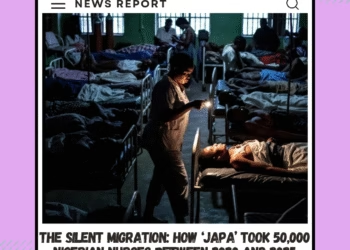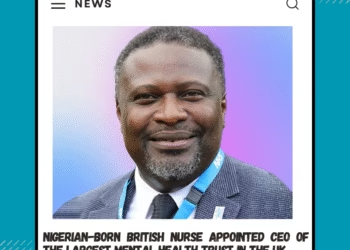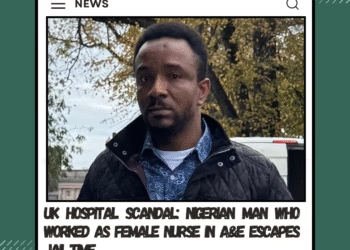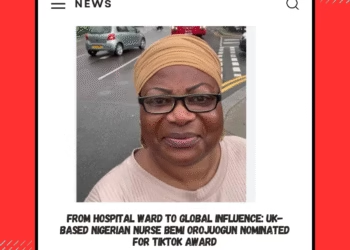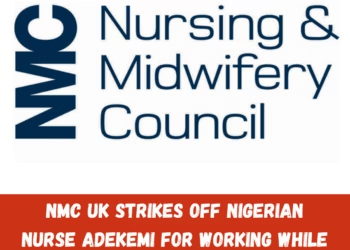A Nurse, Yet Invisible – Rashida’s Heartbreaking Story Seeking Care in a UK Hospital
A true life story of Rashida (Pseudonym), shared with Fellow Nurses Africa, June 15, 2025.
My name is Rashida, a Nigerian nurse working in one of England’s NHS Trusts. As a nurse, I’ve poured my heart into caring for others. Long shifts, night duties, and emotional labor are the pulse of my work. But in 2023, during a night shift that began like any other, I became the patient—and learned how invisible a nurse in uniform can be in the very hospital where she serves.
A Sudden Crisis on Duty
It was a typical night shift in 2023. The ward hummed with activity, but I knew its rhythm well. A few hours in, a sudden wave of dizziness and nausea overwhelmed me. My body, usually resilient through nursing’s demands, was sounding an alarm I couldn’t ignore. One of my patients, despite their own struggles, noticed my distress and asked, “Are you okay?”
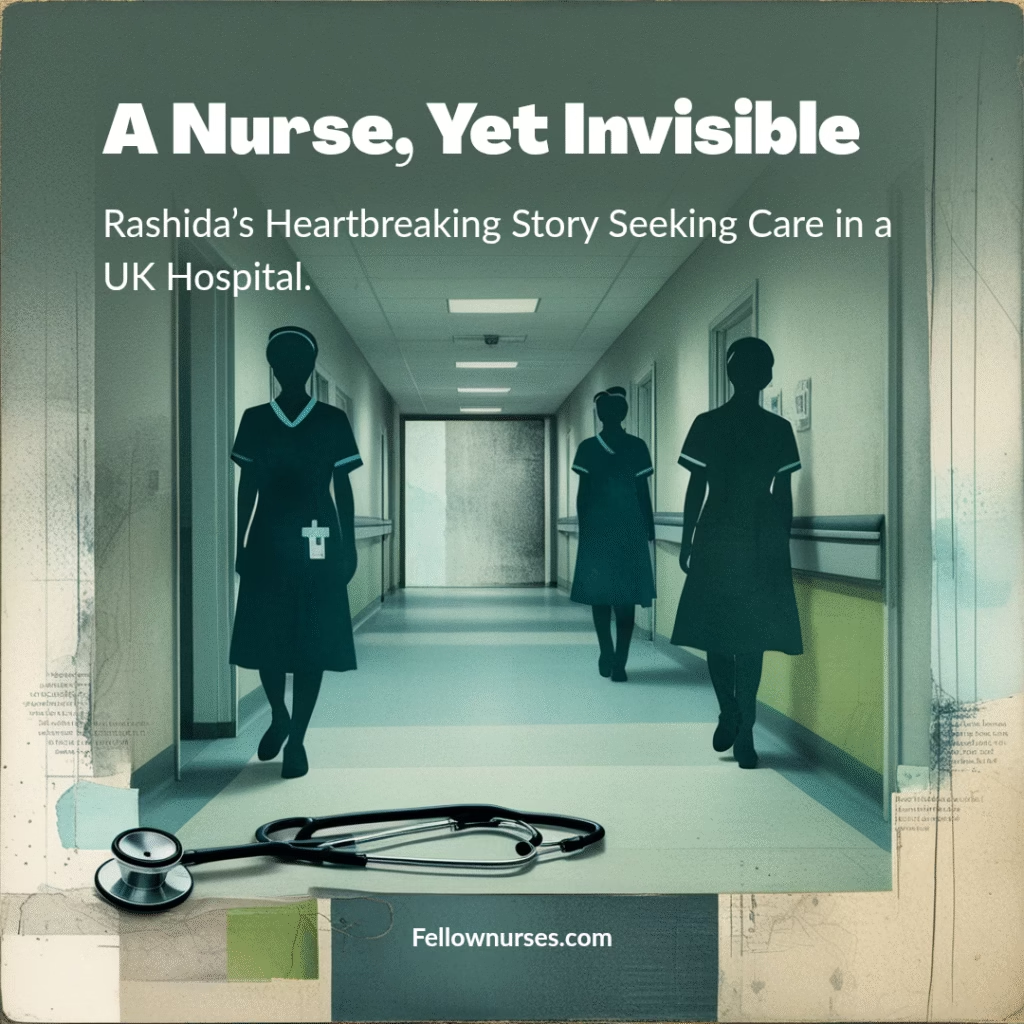
I wasn’t. I alerted my colleagues and asked them to check my vital signs. The readings—pulse, temperature, oxygen levels—were normal. Yet, I knew something was deeply wrong. I’d never felt this way before. After sitting for a few minutes with no relief, I made the tough call to request to go home. Following protocol, I phoned the matron on duty to explain.
Her response wasn’t the empathy I expected. It felt like an interrogation, her questions probing my symptoms as if questioning my honesty. Eventually, she allowed me to leave, but her initial skepticism stung.
From Nurse to Patient: A Descent into Chaos
As I grabbed my bag and jacket from the changing room, my condition worsened. Sweat poured down my face, and I began vomiting uncontrollably—unlike anything I’d ever experienced. Staggering toward the ward’s exit, I reached for anything to steady myself, my legs buckling beneath me.
By God’s grace, a healthcare assistant (HCA) who’d checked my vitals earlier saw me collapsing. He rushed to my side, catching me before I fell and guiding me to a nearby chair. Clutching four disposable vomit bowls, I was wheeled to the Accident and Emergency (A&E) department, still in my nurse’s uniform. My vision faded to darkness, though my eyes were wide open. The voices of colleagues asking what was wrong echoed faintly, as if from another world.
At the A&E registration desk, the HCA urgently pleaded, “Please, this nurse needs help.” He handed over my bag and jacket, which had fallen in the ward, and returned to his duties. I was left in the waiting area, gripping vomit bowls, my uniform a silent reminder of the shift I’d abandoned to save my life.
Eight Hours of Invisibility
What followed was a nightmare I’ll never forget. For eight hours, I sat in the A&E, actively vomiting, sweating, and praying for strength. No nurse approached me. No doctor checked on me. The only person who came near was a domestic staff member, quietly collecting the filled vomit bowls beside my chair.
I was Rashida, a nurse in the same hospital, wearing the uniform I’d donned to care for others just hours before. Yet, I was invisible. The shame was crushing—not just as a patient, but as a professional who’d given everything to the NHS. The HCA who brought me to A&E was the only one who saw me as human that night.
Seven hours into my wait, I dragged myself to the nurses’ desk, hoping I’d missed my name being called. Tears welled as I asked if anyone had called for me. The nurse’s words shattered me: “Oh, sorry darling, but we still have about 17 people before it gets to you. I’m sure we’ll get to you soon, okay?”
Seventeen people. A nurse, collapsing in uniform, reduced to a number in a queue. Hot tears streamed down my face as I shuffled back to my seat, consumed by shame and disappointment.
A Desperate Walk Home
At the eighth hour, with no help in sight, I made a heart-wrenching choice. I lived close to the hospital, so I gathered my fading strength and walked home. It was 5:30 a.m. when I stumbled into my room. Alone, I collapsed into sobs, grieving the betrayal I felt from the system I served.
Exhausted and desperate, I rummaged through my cupboard for medications I’d brought from Nigeria. I found Albendazole (Zentel), a deworming tablet. With no diagnosis and no clue what was wrong, I prayed over it, asking God to heal me. Then, with tears still falling, I crawled into bed.
A Bizarre Follow-Up
At 9 a.m., my phone rang. It was the A&E, asking where I was because they “couldn’t find me.” The caller casually noted that my “vital signs” were fine, except for a blood pressure reading above 140. I was stunned. “Whose blood pressure are you talking about?” I demanded. “Nobody checked my vitals in those eight hours.”
The caller hesitated, asking to confirm my name and date of birth again. After putting me on hold, she hung up without explanation. It was a final blow, a reminder of how little I’d mattered.
A Painful Lesson
That day, I, Rashida, vowed to put myself first, no matter the cost. Since then, if I feel unwell, I call in sick without hesitation. If my condition persists, I return to Nigeria, pay for private care, and receive the attention I deserve.
My story isn’t just mine—it’s a cry for nurses everywhere. We give everything to care for others, but who cares for us when we’re in need? The NHS, stretched thin, can fail even its own. For migrant nurses like me, far from home, the isolation cuts deeper.
A Call to Action for Nurses
To my fellow nurses across Africa and beyond, let’s stand up for ourselves. Prioritize your health. Demand better from the systems we serve. If you’ve faced a similar ordeal, know you’re not alone. Share your story with Fellow Nurses Africa. Together, we can amplify our voices and push for change.
Fellow Nurses Africa is the independent voice of African nursing. We educate, inform, and support the nursing profession.

